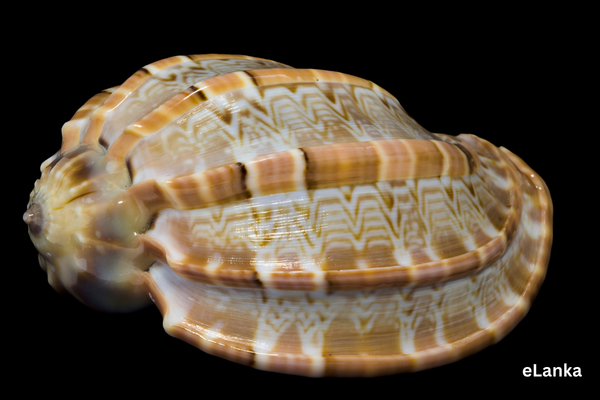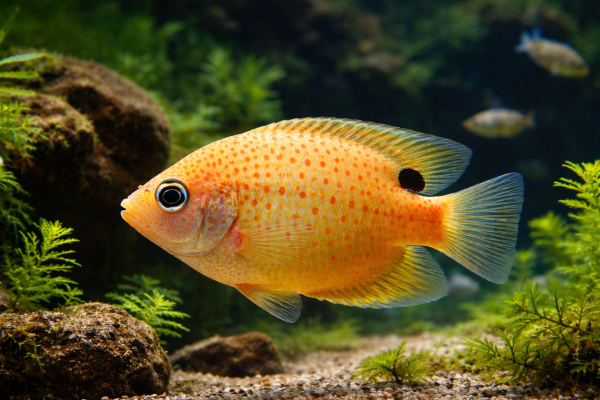Knowing The Foods That Prevent, And Cause Cancer
by Dr Harold Gunatillake , FICS, FIACS, AM(Sing),MBBS
Before one could be afflicted with an illness like cancer, one would understandably assume, and say “It wont be me.” You hear of stories how others have got it and how they suffer going through surgery, radiotherapy, chemotherapy, with distressing side effects, but one would never think that one could be a victim of it someday.
At parties you would hear one lady whispering to another, “Do you know dear, that so and so is having cancer?” You will never think of taking precautionary methods to avoid the disease yourself, and when you get it, you ask God why is it me? A Buddhist thought would be to put it on “Karma.”
More and more people in the developed countries are coming to understand the important role diet has to play in the prevention of many forms of cancer, and many recent studies have indicated that it is possible to help prevent breast, colon and other cancers by eating the right foods.
30 to 40 percent of cancers are directly linked to dietary choices according to a 1997 report underwritten by the American Institute for Cancer Research, titled Food, Nutrition, and the prevention of Cancer: A Global Perspective.
It is observed that some diets high in calories and in fat can increase the risk of cancer. A diet full of fruits, vegetables and whole grains yield numerous immediate and long term benefits.This is where brown and red rice are more beneficial than polished white rice.
“Can we eat our way to cancer prevention? I think so, “Frank J.Rauscher, PhD, tells WebMD.
“That’s what we’re seeing in studies coming out here and in other places.”
Can-LanSun, MD, a researcher at the University of Southern California, led a research team to China and studied the effects of drinking green tea. Green tea is rich in chemicals called polyphenols. Animal studies show that polyphenols have potent cancer-fighting effects. The researchers measured green tea polyphenols in the urine of healthy people and in people with stomach or oesophageal cancer. They found that drinking regularly cuts the risk of cancer by half.
Sri Lankans are traditionally not green tea drinkers. The readers of this article should seriously think of drinking green tea regularly, especially if you belong to family that has a history of cancer.
Researcher Rauscher says that the green tea study is the culmination of an experiment going on for thousands of years, and only during the last ten years that the active ingredients like the polyphenols have been identified having the anti-cancer effect. No single food or nutrient will remove the risk of cancer, but following some guidelines help to reduce your chances of getting cancer.
Plant based diet
Many experts believe that adding more plant-based foods into your regular diet can prevent many types of cancer. That is because fruits, vegetables and other plant-based foods contain phytochemicals, the natural substances in fruits and vegetables that seems to offer some protection against the formation of certain types of growths.
On the other hand eating saturated fats in animals found in meat, butter and cheese are linked to an increased risk of cancer, heart disease and other diseases.
Some of the following information is obtained from an article on Cancer and Food on the Victorian (Australian) Government website.
Lung cancer- this would be the leading cause of death from cancer, mostly men, in the world and smoking is mostly responsible. There is convincing evidence that diets high in vegetables and fruits are protective against lung cancer and that compounds called carotenoids, which are present in significant amounts in foods like carrots, and other coloured vegetables and fruits, are probably responsible for some of these effects. However, these compounds may not have an anti-cancer effect on smokers.
Breast Cancer- this is the most common type of cancer in women in any part of the world. Rapid growth during the young age is an observable factor for increased risk for breast cancer. Much of the risk factors are influenced by oestrogen levels during a woman’s
reproductive life, such as age of menarche (first period), number of pregnancies and breast feeding practices.
Soy Foods- which include tofu, soymilk, soybeans, soy nuts, miso (soy paste), tempeh, are particularly relevant in their effects on hormone related cancer. “There’s a strong biological basis for thinking that soy might lower the risk of prostate cancer,” says Mark Messina, a soy expert who is an adjunct professor at Loma Linda University in California and a consultant to the soy industry.
In Asia where tofu and other soy foods are a regular part of the diet, prostate cancer rates are low; the isoflavones in soy foods seem to inhibit the growth of prostate cancer cells in animals and test tubes.
Soy contains flavones (anti-oxidant), which are biologically active phytoestrogens, a plant derived weaker form of oestrogen that some scientists believe replaces the body’s stronger form of oestrogen at oestrogen receptor sites in the breast, thereby reducing the probability of developing cancer. Several human and laboratory studies have suggested that soy consumption early in life may help protect against breast cancer later in life. It is also found that taking soy products may increase the risk of cancer in women who have already had breast cancer.
Researchers at the University of Illinois at Urbana-Champaign recently announced results of research suggesting that soy foods and soy supplements may promote the growth of recurrent breast cancer on women who have had been treated for breast cancer. On the contrary, soy foods seem to prevent breast cancer in women before menopause, who have had no history it.
The study director, William G.Helferich, a professor of food and science and human nutrition, reported that his study suggests that highly processed isoflavone as in soy products may pose a risk to postmenopausal women who are consuming them as an alternative to
hormone replacement therapy.
Micro-nutrients and prostatic cancer
An article by Bonnie Liebman on the subject of preventing prostate cancer, writes.”Now for the first time, the evidence is strong enough that the National Cancer Institute (NCI) is set to launch a ten year trial on 32,000 men to see if two supplements-selenium and vitamin Ecancut the incidence of prostate cancer.”
Selenium- In the 1980s, when Larry Clark and colleagues assigned 1,300 people to take 200 micrograms of selenium every day, no one suspected that selenium might prevent prostate cancer. Clark told Nutrition Action Healthletter in 1996 that all three leading cancers- lung, prostate, and colon – the incidence of cancer dropped.
Vitamin E: The Alpha-Tocopherol Beta-Carotene (ATBC) study tested a daily dose of 50 IU of vitamin E (that’s the alpha-tocopherol) on 29,000 male Finnish smokers, had no impact on lung cancer.
“In the men who took alpha-tocopherol, we saw a one-third reduction in the incidence of, and a 41 percent reduction in death rate from, prostate cancer over a period of five to eight years,” explains Albanes, one of the ATBC study investigators.
Red meat and breast cancer
A study of more than 90,000 nurses, led by a faculty member at Harvard Medical School, was published in a respected medical journal in November 2006. Of the 1021 women who developed breast cancer while participating in the study, women with a certain type of
common breast cancer (oestrogen and projesterone receptor positive) were more likely to have eaten, on average, at least 11 servings of red meat every week in contrast the study showed that women who ate five servings or fewer of red meat every week were only about
half as likely to develop breast cancer.
The study also showed that women who ate more pork were more likely to develop breast cancer than women eating beef or bacon. Sri Lankan women generally eat about 1-2 servings of red meat a week with rice or bread, and as such there is no risk of contributing to breastcancer.
Saturated fats, trans-fats and cancer
The two most damaging fats are saturated fats and trans-fats (margarine). The primary source of saturated fat is animal products, such as meat, whole-fat milk and milk products. A twenty year study called the Nurses Study, conducted by Harvard University, showed saturated fats were correlated with higher incidence of endometrial cancer in the womb. Trans fats, otherwise known as hydrogenated oils come from heating vegetable oils, and are found mainly in commercially prepared baked goods, fried foods, margarines, snack foods, and processed foods. They have been implicated in increased risk for non-Hodgkin’s lymphoma.
Since fat cells split easily, they contribute to a high population of free radicals. These free radicals tend to damage cell membranes and the cell’s DNA structure. When the DNA structure is interfered with, mutation can occur, which leads to the formation and growth of cancerous cells. It is important to limit the fat intake daily to 30 percent or less of your calorie intake. However, according to the Harvard School of Public Health, studies have shown that what is important is not the amount of fat in the diet, per se, but the type of fatsaturated fats, and trans fats.
Cancer fighting foods
• Avocados- rich in glutathione, a powerful antioxidant that attacks free radicals in the body by blocking intestinal absorption of certain fats.
• Broccoli, Cabbage, and Cauliflower- have a chemical component called indole-3-carbinol that can combat breast cancer by converting a cancer-promoting oestrogen into a more protective variety. Also contains phytochemical sulforaphane –aid in preventing cancer of
the colon and rectum.
• Carrots contain alot of beta-carotene, which help reduce a wide range of cancers including lung, mouth, throat, stomach, intestine, bladder, prostate and breast.
• Chili peppers and jalapenos contain a chemical, capsaicin, which neutralize certain cancercausing substances (nitrosamines) and may help prevent cancers such as stomach cancer,
• Garlic has immune-enhancing allium compounds (dialylsultides) that appear to increase the activity of immune cells that fight cancer and indirectly help break down cancer causing substances.
• Grapes, red contain bioflavonoids, powerful antioxidants that work as cancer preventives. Grapes are also rich in resveratrol, which inhibits the enzyme that can stimulate cancer-cell growth and suppress immune response.
• Nuts contain the antioxidants quercetin and campferol that may suppress the growth of cancers.
• Oranges and lemons contain limonene which stimulates cancer-killing immune cells (lymphocytes) that may also break down cancer-causing substances.
• Sweet potatoes contain many anticancer properties, including beta-carotene, which may protect DNA in the cell nucleus from cancer-causing chemicals outside the nuclear membrane.



















